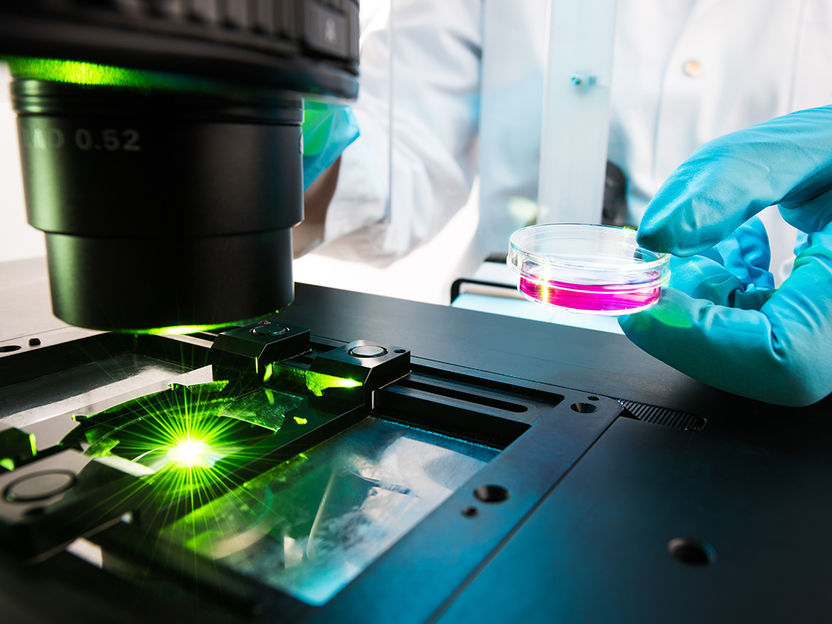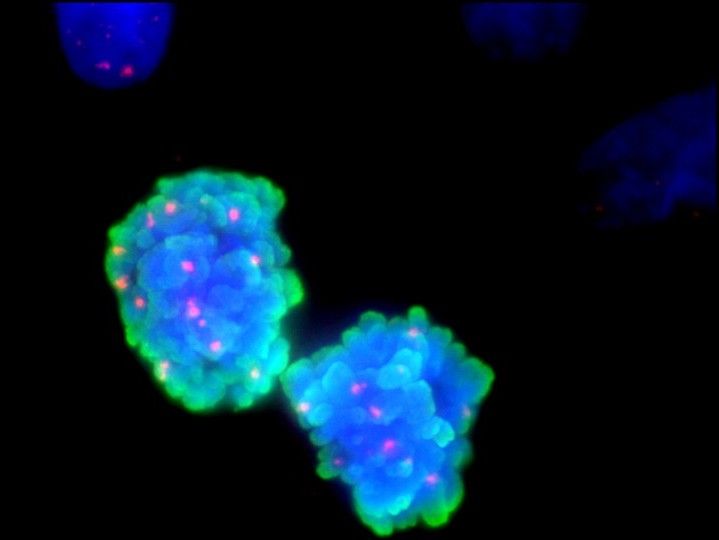Low-carb diets linked to atherosclerosis and impaired blood vessel growth
Study suggests that popular diet regimen may have adverse effect on body's restorative capacity
Even as low-carbohydrate/high-protein diets have proven successful at helping individuals rapidly lose weight, little is known about the diets' long-term effects on vascular health. Now, a study led by a scientific team at Beth Israel Deaconess Medical Center (BIDMC) provides some of the first data on this subject, demonstrating that mice placed on a 12-week low carbohydrate/high-protein diet showed a significant increase in atherosclerosis, a buildup of plaque in the heart's arteries and a leading cause of heart attack and stroke. The findings also showed that the diet led to an impaired ability to form new blood vessels in tissues deprived of blood flow, as might occur during a heart attack.
Described in Proceedings of the National Academy of Sciences ( PNAS ), the study also found that standard markers of cardiovascular risk, including cholesterol, were not changed in the animals fed the low-carb diet, despite the clear evidence of increased vascular disease.
"It's very difficult to know in clinical studies how diets affect vascular health," says senior author Anthony Rosenzweig, MD, Director of Cardiovascular Research in BIDMC's CardioVascular Institute and Professor of Medicine at Harvard Medical School. "We, therefore, tend to rely on easily measured serum markers [such as cholesterol], which have been surprisingly reassuring in individuals on low-carbohydrate/high-protein diets, who do typically lose weight. But our research suggests that, at least in animals, these diets could be having adverse cardiovascular effects that are not reflected in simple serum markers."
Rosenzweig and his coauthors found that the increase in plaque build-up in the blood vessels and the impaired ability to form new vessels were associated with a reduction in vascular progenitor cells, which some hypothesize could play a protective role in maintaining vascular health.
"A causal role for these cells has not yet been proven, but this new data is consistent with the idea that injurious stimuli may be counterbalanced by the body's restorative capacity," he explains. "This may be the mechanism behind the adverse vascular effects we found in mice that were fed the low-carb diets."
The investigators studied a mouse model of atherosclerosis. These "ApoE" mice were fed one of three diets: a standard diet of mouse "chow" (65 percent carbohydrate; 15 percent fat; 20 percent protein); a "Western diet" in keeping with the average human diet (43 percent carbohydrate; 42 percent fat; 15 percent protein; and 0.15 percent cholesterol); or a low-carb/high-protein diet (12 percent carbohydrate; 43 percent fat; 45 percent protein; and 0.15 percent cholesterol).
"We had a diet specially made that would mimic a typical low-carb diet," explains study's first author Shi Yin Foo, MD, PhD. "In order to keep the calorie count the same in all three diets, we had to substitute a nutrient to replace the carbohydrates. We decided to substitute protein because that is what people typically do when they are on these diets."
The scientists then observed the mice after six weeks, and again at 12 weeks. Consistent with experience in humans, the mice fed the low-carb diet gained 28 percent less weight than the mice fed the Western diet. However, further probing revealed that the animals' blood vessels exhibited a significantly greater degree of atherosclerosis, as measured by plaque accumulation: 15.3 percent compared with 8.8 percent among the Western diet group. (As expected, the mice on the chow diet showed minimal evidence of atherosclerosis compared with either of the other two groups.)
"Our next question was, 'Why do the low-carb mice have such an increase in atherosclerosis?'" says Foo. Searching for an explanation, she and her coauthors proceeded to measure the usual markers thought to contribute to vascular disease, including the animals' cholesterol and triglyceride levels, oxidative stress, insulin and glucose, as well as levels of some inflammatory cytokines.
Since there was no difference in the noxious or inflammatory stimuli that the animals' blood vessels were exposed to, Foo wondered whether the restorative capacity of the animals might be contributing to the difference. The investigators, therefore, looked at the animals' endothelial or vascular progenitor cell (EPC) counts. Derived from bone marrow, the EPC cells may play a role in vessel regrowth and repair following injury.
"Examinations of the animals' bone marrow and peripheral blood showed that the measures of EPC cells dropped fully 40 percent among the mice on the low-carb diet – after only two weeks," says Rosenzweig. "Although the precise nature and role of these cells is still being worked out – and caution is always warranted in extrapolating from effects in mice to a clinical situation – these results succeeded in getting me off the low-carb diet."
Even more important, he notes, the findings point out that there can be a disconnect between weight loss or serum markers and vascular health, and that vascular health can be affected by macronutrients other than fat and cholesterol – in this case, protein and carbohydrates.




























































